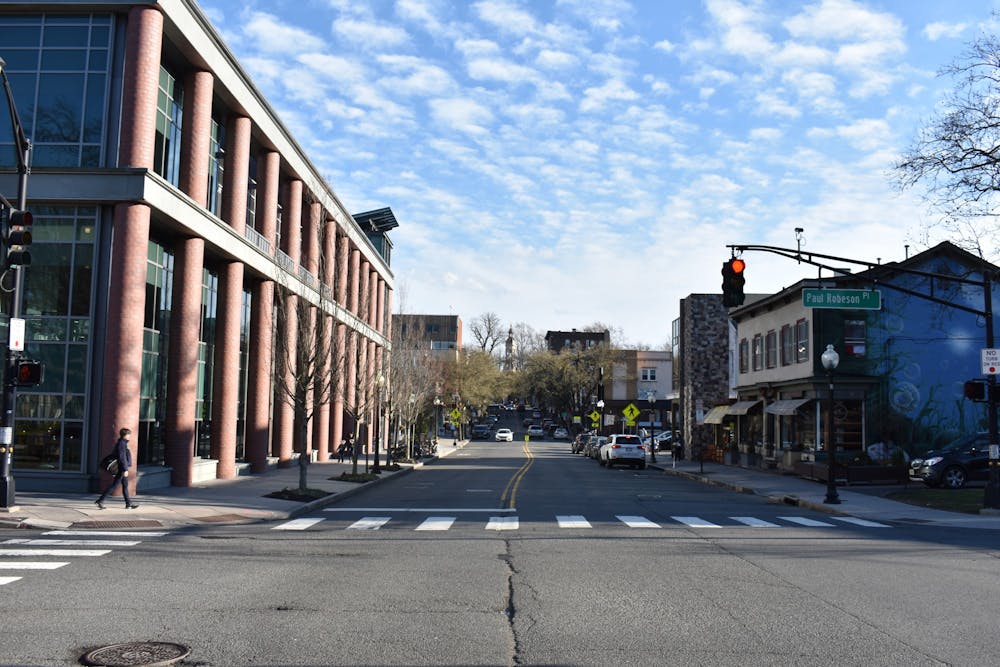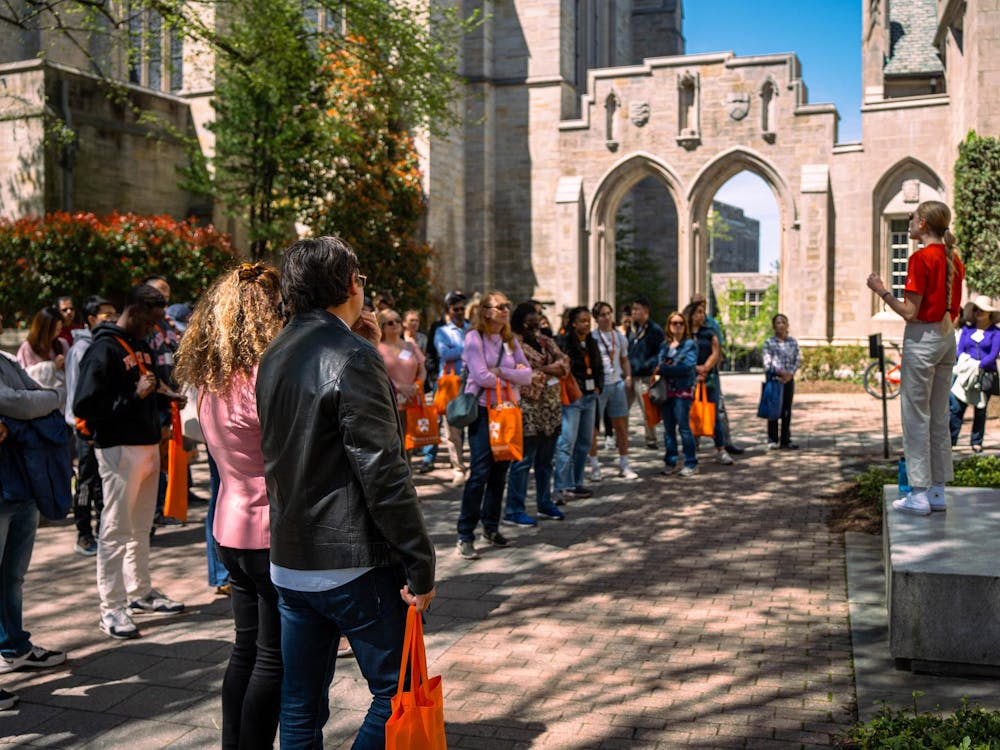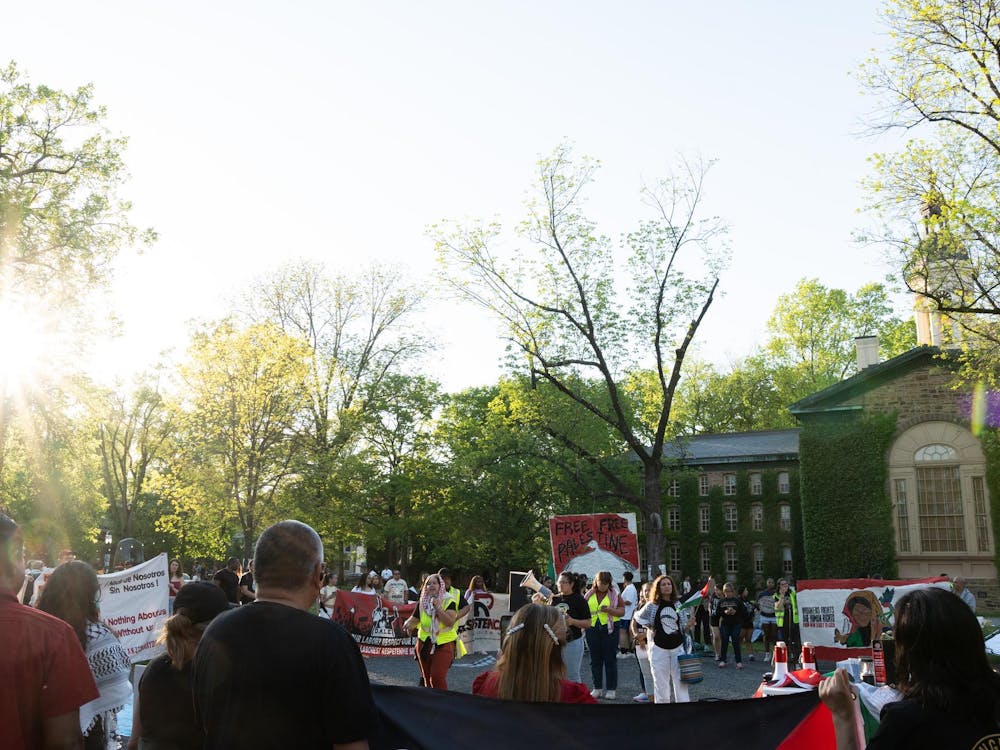On Oct. 6, President Joe Biden pardoned individuals convicted of possession of marijuana on federal criminal records. According to Professor Udi Ofer, a visiting professor in the School of Public and International Affairs and former director of the Justice Division of the ACLU, this marked a major symbolic move in addressing the decades-long war on drugs as states and localities could follow in this step forward.
But in the town of Princeton, locals don’t seem as eager to move forward on the issue of cannabis. On May 17, the Princeton Town Council decided to disband its Cannabis Task Force (CTF), ending the group’s long-debated proposal to license a marijuana dispensary in the town.
The end of the task force was the culmination of almost a year-long fight led by members of the CTF, a group composed of various stakeholders including health and public safety experts, business representatives, University officials and professors, and local residents, to garner support for their proposal. The CTF was founded following New Jersey’s legalization of marijuana in 2021 and submitted its proposal for a dispensary to the town council on Nov. 30, 2021.
The May meeting lasted two hours, during which the council reached the conclusion that there is not enough support to continue with the planning for the dispensary. It was the second public meeting held to discuss the potential dispensary. The first had taken place in March and had ended with a long list of people still waiting to speak in the public comment portion.
One of those attendees was Sherry Saltorelli, a Princeton parent who expressed worry about the effects of cannabis on the community’s children and mental health.
“Once opened, the negative effects cannot be undone,” she said during the meeting. “What do you call it when you do something even though you know it is wrong or will harm someone else — in this case bringing cannabis closer to our community, especially those most vulnerable? Pure, simple greed.”
Councilmember Eve Niedergang, who was among the leaders of the proposal for a marijuana dispensary, was not swayed by the lack of support from community members.
“I remain absolutely convinced that opening a dispensary is the best thing for the community on a number of different levels,” Niedergang told The Daily Princetonian, noting that income from the dispensary could be used to address inequities from the war on drugs and other social justice initiatives.
Some of the opposition from the town voiced concerns that students at Princeton middle and high schools would have easier access to marijuana, which they argue would be detrimental to their mental and physical health, especially without proper education. However, University students who went to high school in town don’t see these concerns as an actual problem.
“[The schools] make it very clear,” Henry Cammerzell ’25, a graduate of Princeton High School, told the ‘Prince.’ “They always have a drug, sex, and health class every other year, so you have to learn about it.”
Nate Howard ’25 told the ‘Prince’ that these concerns were “misplaced fears” held by “a minority of constituents in the town.”
“It’s important to legalize marijuana and, in this case, to allow a dispensary because the prohibition on marijuana does not stop people from getting it. It just allows for discriminatory criminal justice policy,” Howard said. “Plus, it’s now easier for larger businesses from out of state to come in [and take the profits from marijuana sales].”

Howard is a contributing columnist for the ‘Prince.’
According to the ‘Prince’ Class of 2026 frosh survey, 22.5 percent have tried marijuana recreationally and 57.4 percent of survey respondents said they were either “somewhat favorable” or “strongly favorable” to the legalization of marijuana for recreational use.
Professor Ofer, who was also a member of the CTF, told the ‘Prince’ that the Task Force also addressed the concern of the drug reaching children.
“The position that the Task Force took was that allowing dispensaries would help to reduce underage access to cannabis by working to eliminate Princeton’s existing underground cannabis market,” Ofer said. “A lot of studies have shown that the best way to address underage consumption is by regulating the market and controlling access points as much as possible and adopting a harm reduction model in a public education model.”
Ofer sees the decision as a failure by the town to make up for the history of racial injustice associated with this issue.
“This was the opportunity for the town of Princeton to lead, to address the long history of racial inequities and cannabis prohibition,” Ofer told the ‘Prince.’ “And they just decided to do nothing, which is very disappointing.”
After the May meeting, the Cannabis Task Force disbanded, without a plan for the future of the drug and its regulation in the town. Although she has no plans to revisit this issue in the future, Councilmember Niedergang doesn’t think Princeton will be a “dry town” forever.
“Assuming things go smoothly in other portions of the state, I would expect that at some point in the future, the issue will be revisited, and Princeton’s prohibition will come to seem anachronistic,” she said.
Separately, Niedergang pointed to a survey created by the town for University students and staff to help come up with other ideas for future businesses.
Editor’s Note: This story has been updated to clarify that the survey of University students and staff is not tied to the issue of marijuana in Princeton.
Charlie Roth is a Staff News Writer and Assistant Data Editor for the ‘Prince,’ focusing on local town coverage. He can be reached at charlieroth@princeton.edu or @imcharlieroth on Twitter or Instagram.









